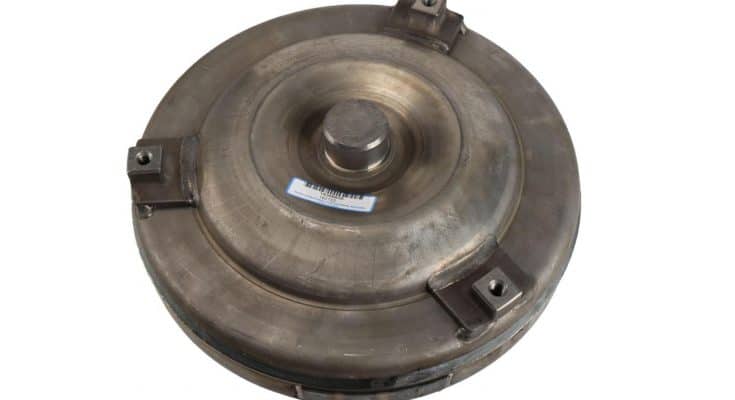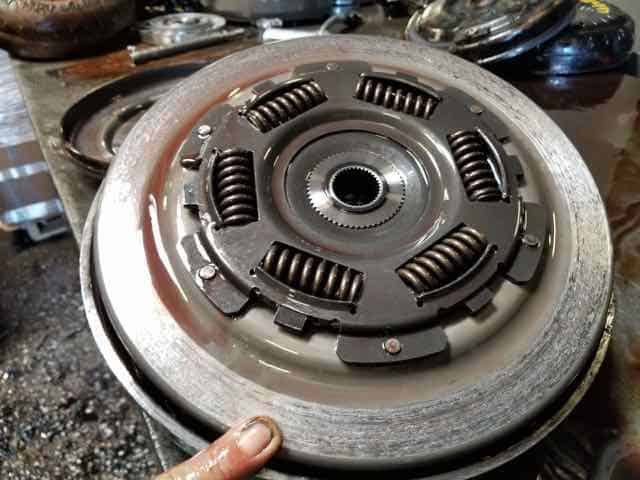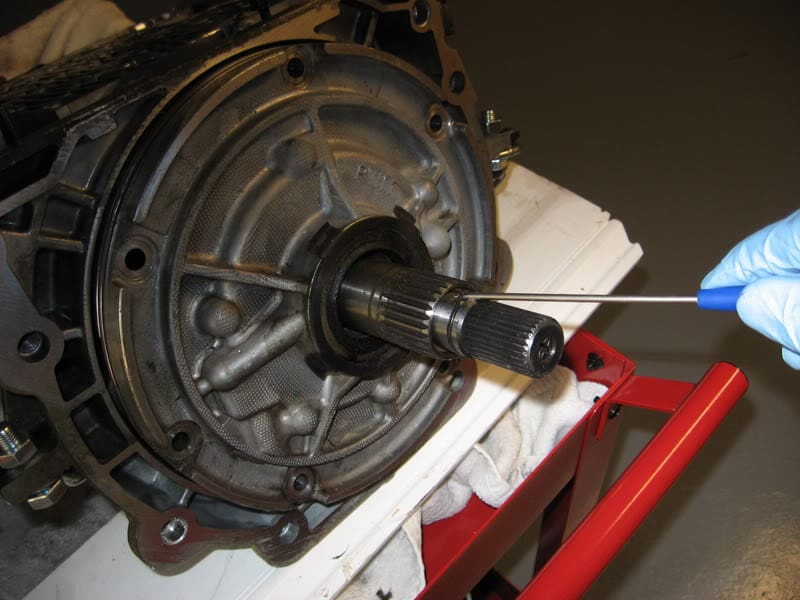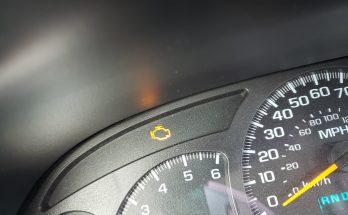Since the torque converter is responsible for transferring power from the engine to the rest of the drivetrain, it plays a critical role in keeping your car or truck moving efficiently. The torque converter lockup helps improve the vehicle’s efficiency by helping to improve gas mileage, reduce trans temps and stress, and just make for an overall better driving experience.
When 4l60e converter lockup fails, there are usually a few causes, such as:
- Worn torque converter clutch
- Bad converter seal
- Bad TCC solenoid
Worn Torque Converter Clutch
One of the most common 4l60e torque converter problem has to do with the converter lock up. The easiest way to diagnose a bad or failing torque converter clutch is when there is no lock up. The 4l60e torque converter is designed to lock up primarily in 4th gear (can also be enabled to lock up in 3rd gear as well), so when it doesn’t lock, it’s quite noticeable.
When a converter locks, it lowers the RPMs and usually feels like going into another gear. When it doesn’t lock however, RPMs will keep climbing in 4th gear.
If the torque converter clutch material fails, it’s highly likely that it gets circulated through out the transmission
Shutters at Higher Speeds
When a converter clutch is failing but you still have lockup, you may often feel a sort of bucking or inconsistent bucking. This indicates that the converter clutch material has worn, but not to the point of complete failure….yet. Eventually this will go away and so will lockup all together.
Bad Converter Seal
If the torque converter seal that is located on the input shaft fails, it will prevent lockup. When this happens, it’s often assumed that the converter failed and can be hard to diagnose without complete removal of the transmission and torque converter.
Bad TCC Solenoid
A bad torque converter lockup solenoid can cause the lockup to not happen at speed. This is typically much easier and less labor intensive to diagnose and fix compared to the issues within the converter or seal on the input shaft. You can learn more about the 4l60e tcc solenoid failure symptoms and how to fix with our guide found here.
Symptoms of Torque Converter Lockup Failure
4l60e torque converter lock up failure leads to a number of issues that are somewhat easy to diagnose. Since the torque converter lockup helps prevent slipping in the trans, this keeps fluid temps low. Based on this, one of the most common symptoms of torque converter lock up failure is higher than average transmission temps.
Overall, a torque converter lockup failure may lead to complete transmission failure eventually, especially if your converter clutch is worn out and sending material through the transmission. When it comes to diagnosing a 4l60e converter not locking up, it’s highly recommended to let an experienced professional handle this. They have access to diagnostic tools that the average DIY mechanic doesn’t, and have more than likely seen this before, so can provide insight on what to do next much faster than you can.





